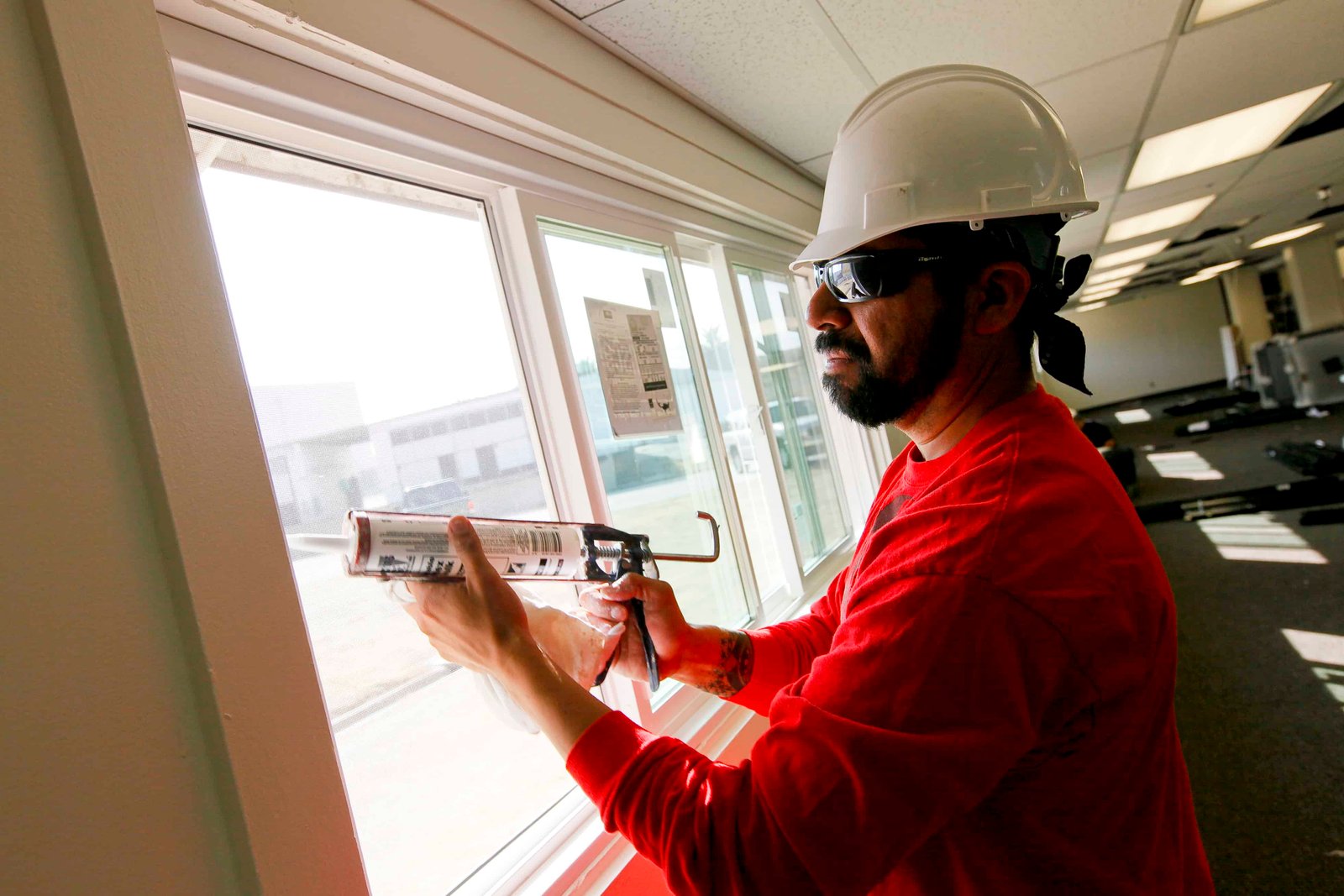It is estimated that a 1/8 inch gap around windows and doors is equal to leaving a window open 6 inches for the duration of the winter. That is a significant amount of energy dollars going to waste. Caulking supplies are relatively inexpensive and easy to use.
Caulk when the temperature is warm. Caulk not only adheres better for a more solid seal, but it flows easier in warm weather than cold. Read the package directions carefully and you will see there are temperature limits on when the material can and cannot be used for optimum results.
Even professionally installed doors and windows can develop leaks over time. Shifting and settling of the structure will cause changes in the seals.
To find leaks, first choose a day with little wind outdoors. Turn on an attic fan. If you don’t have one of those installed, just turn on bathroom fans or stove exhaust. This will create a negative air pressure in the house. Then with a lit incense stick test the seals. The smoke of the incense will be blown, showing you exactly where you need to fill in with caulk.
Also check around incoming pipes, chimneys, fireplaces and other masonry, or any other area you suspect may have some gaps. Identify those places and make note of them. Don’t trust your memory.
When purchasing your supplies, opt for a quick-release caulk gun. It will automatically release the pressure when you let go of the trigger. Non-quick-release guns may be less expensive, but they will continue to expel the caulk when you don’t need it. Buy a high-grade, paintable caulk. Lower grade caulks will need to be reapplied in only a few years. Painting is also recommended for the visual continuity of your home.
Check your home annually for leaks. The house will probably shift again and it will be less time consuming if you catch each of those small leaks, reinforcing all the hard work you have started.
You may want to consider a professional with their high-tech equipment. They can weatherproof your home in less time than it will take you and they will probably detect more defects. Sometimes experience does pay for itself in the long run.


